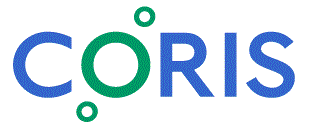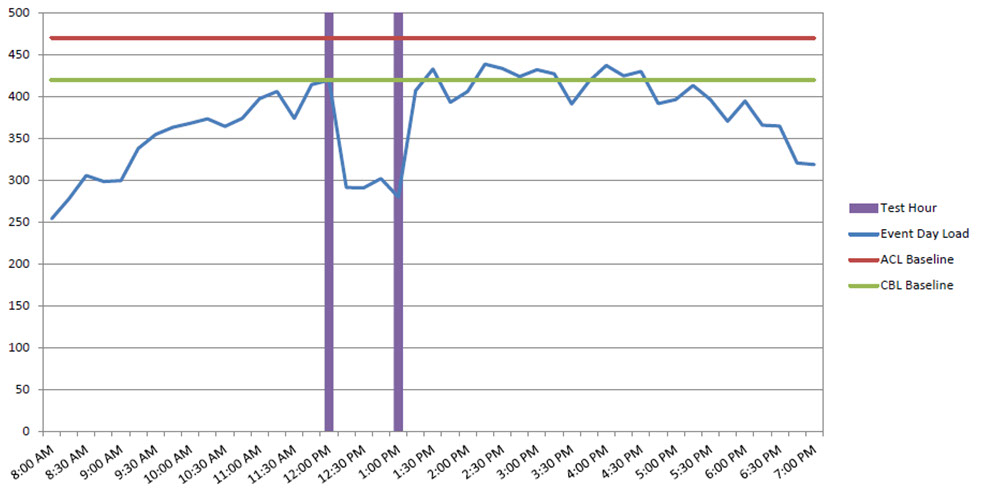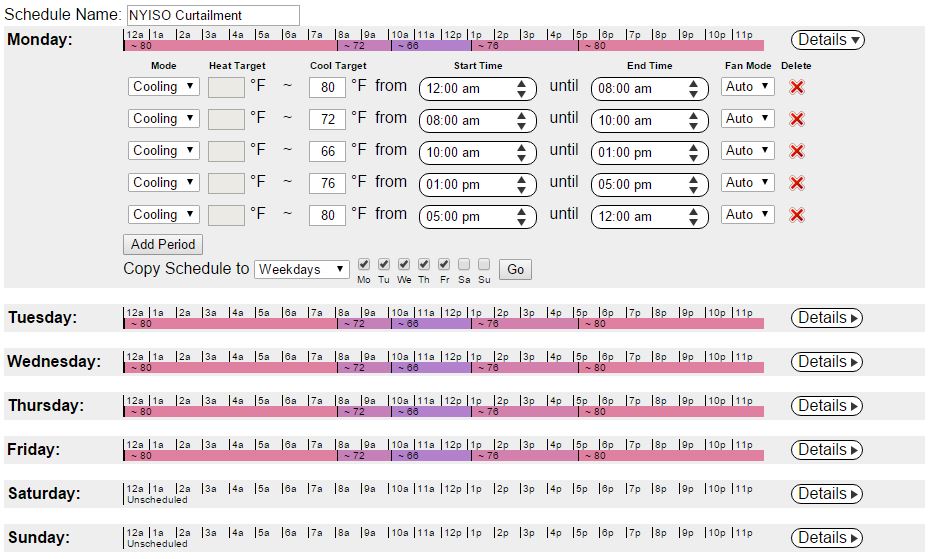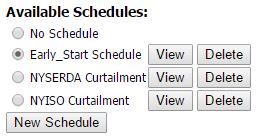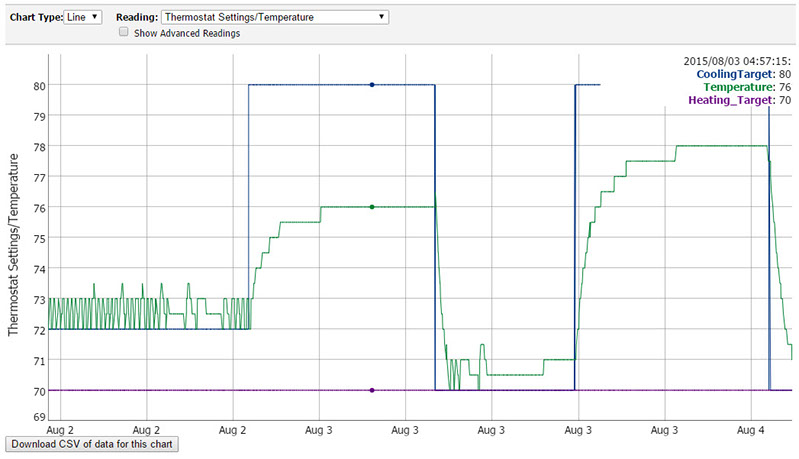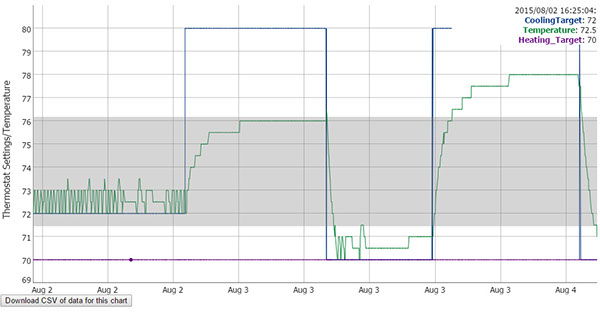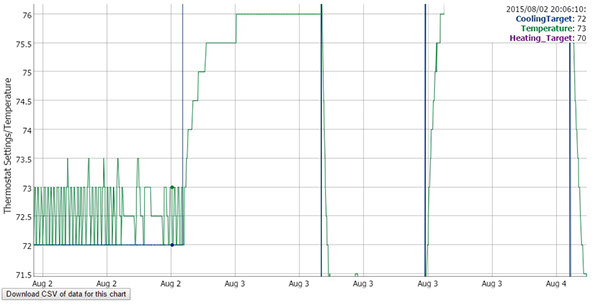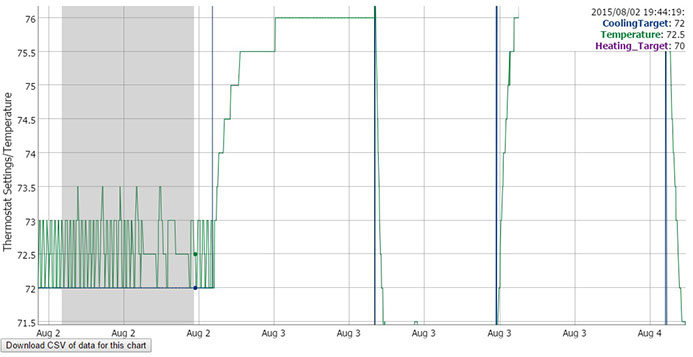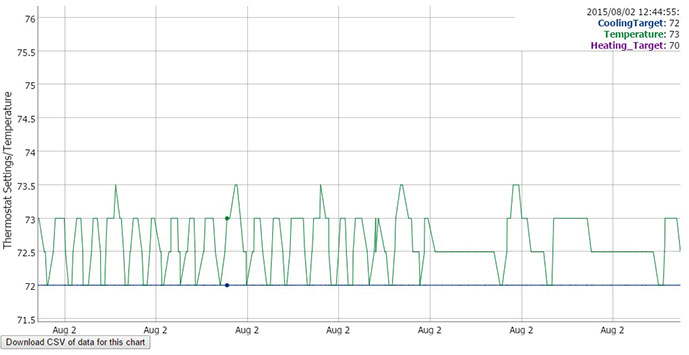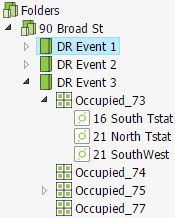Do you want to automatically shed load during DR events?
remote management of DEMAND RESPONSE CONTROLS
- Remote, automatic load curtailment based on curtailment plan
- Automatically pre-chill buildings before DR events and shed load during DR events
- Set up alerts for tenant space temperatures that rise above expected levels
- Permanent data log of temperatures and settings during previous DR events to optimize future performance
smart
- Easy to install—wireless sensors, temperature sensors, and lighting controls
- Easy to set up—set up alerts and DR event schedules via web-based user interface
- Easy to operate—30-minute training on web-based user interface, point-and-click controls
simple
- No local BMS control server that can be hacked or that requires a "hole" in the firewall for remote access
- All thermostat and sensor data is encrypted during transmission to Coris servers
- All data logs and DR control schedules maintained on "cloud" servers in secure data centers
secure
how Coris works
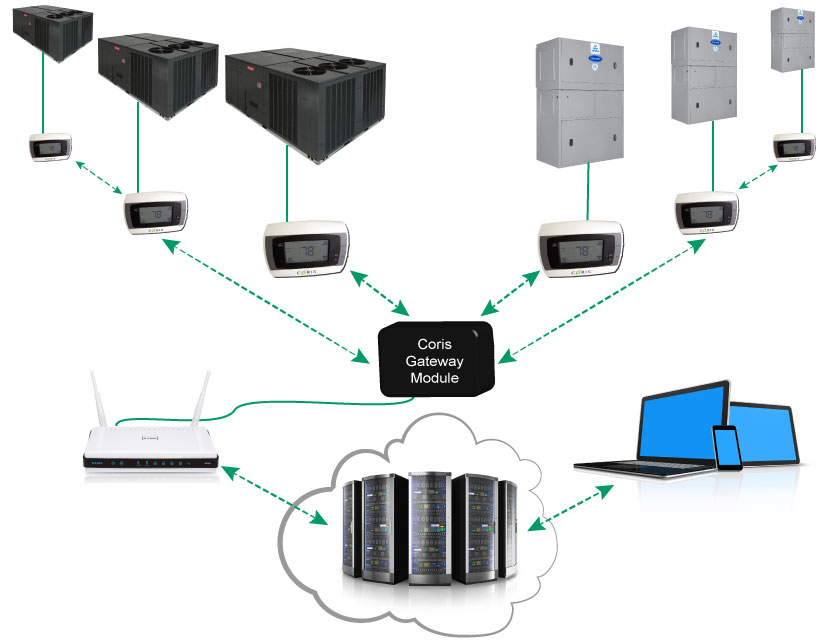
Each Coris Gateway module can support up to 35 ICTs. Once your Gateway is connected to a router with an Ethernet cable, it automatically connects to Coris' secure servers in the cloud. The ICTs are then able to communicate with the servers.
Whether you have rooftop air conditioners or package units, your existing thermostats can be replaced with Coris Internet-Controlled Thermostats (ICTs).
Once installed, Coris' encrypted wireless mesh network enables ICTs to communicate with one another to reach a Gateway module.
"The Coris system performed extremely well, and this bodes well for our other ADR ventures."
—Jonathan Kadishon, Comverge
Coris in action
Large Restaurant
A large restaurant with banquet areas installed Coris thermostats to control the large air conditioning units in the restaurant. Since most DR events were scheduled from 1pm to 5pm, the restaurant pre-chilled the dining areas on the mornings of an event (they were notified the night before of an upcoming event); they use the Coris controls to turn the A/C units off at 1pm, but keep fans running. Lunch usually lasts until 2pm, so the dining areas remain comfortable. With the A/C turned back on at 5pm, the dining areas were comfortable for dinner.
Golf Course
A golf course installed Coris thermostats and Coris water pump controls to participate in DR events. Similar to the restaurant mentioned at left, the dining and active member areas are pre-chilled before DR events, but the bar area is left alone because it includes an informal dining area and is occupied most afternoons. The large pumps that move water between ponds (reservoirs for sprinkler systems) are turned off during DR events.
Office Building
The owner of a 450K-square-foot office building wanted to participate in the local utility’s demand response program. Their electrical usage usually peaked at 1,500KW during warm summer days. The demand response aggregator worked with the owner to determine the amount of load that could be shed without causing discomfort for tenants or operational problems. A goal of 500KW to be shed during DR events was agreed upon, and Coris HVAC controls were installed to manage the load shedding. During the testing and validation, Coris provided support to the building owner’s staff, and they were able to exceed the goal. They have successfully exceeded their goals for all DR events since installation.

FAQs
Is there a limit to load that can be controlled by Coris?
No, any number of air conditioning units, lights, pumps, or other high-wattage devices can be controlled through the Coris web-based control interface.
Can I remotely control multiple facilities with Coris modules?
Yes, there is no limit to the number of facilities or locations that can be controlled through Coris' web-based control interface.
Can I prevent tenants from changing settings?
Yes, the thermostats can be "locked out" during DR events—prohibiting manual adjustments to individual thermostats.
Can I pre-chill the building prior to a DR event?
Yes, many buildings pre-chill 4° to 6° below the normal target temperature before the event starts; by pre-chilling, tenant space is still comfortable by the end of the event. This can also be done with a single click using the Coris system.
Other questions?
Check out our FAQ page.
For more info, call us at 212-710-2973 or email info[at]corisecs[dot]com
© 2018 Coris
